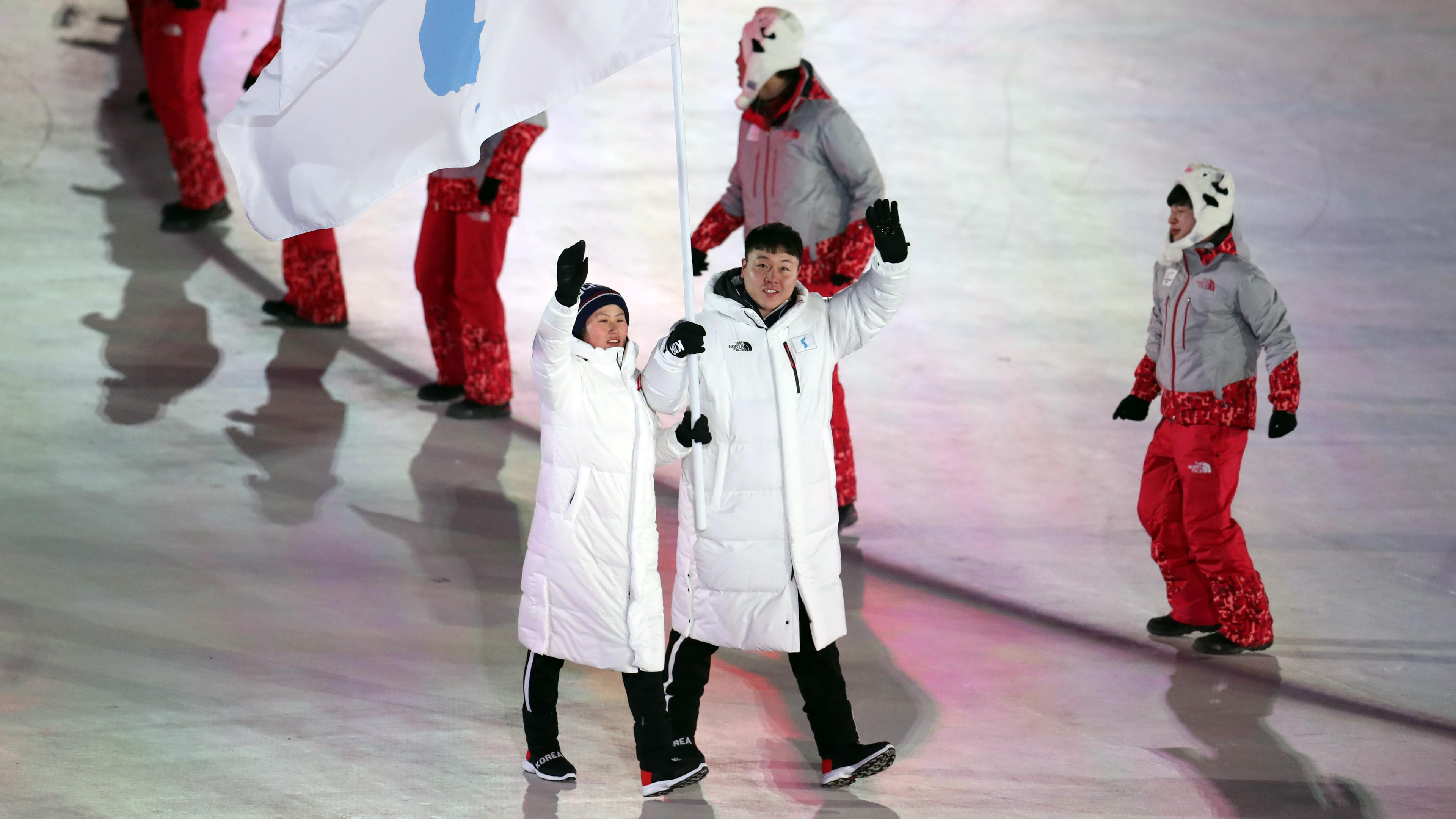
SCRATCH beneath the political permafrost and the frozen vials of Russian urine, set aside a far-from-thawed Cold War, and a Winter Olympics is threatening to break out in Pyeongchang.
With the temperature predictably plummeting in the Olympic Stadium, a Games whose build-up has been beset by an interminable doping scandal and specious talk of bringing peace to the Korean peninsula, was declared open by International Olympic Committee president Thomas Bach.
Alluding to an issue which was only finally clarified less than nine hours prior to the lighting of the flame, when the appeals of 47 excluded Russian athletes were thrown out by the Court of Arbitration for Sport, Bach told the athletes: “You can only really enjoy the Olympic experience if you respect the rules and stay clean.
“Only then will your lifelong memories be the memories of a true and worthy Olympian.”
Watched by Kim Yo-jong, the sister of North Korean leader Kim Jong-un, who became the first member of the ruling Pyongyang family to set foot in the south since the end of the Korean War, and a 200-strong squad of specially-selected cheerleaders, the two Korean teams marched in side-by-side under a unified flag.
It may have been the 10th time the two Koreas had performed a similar gesture at a sporting event since Sydney 2000, but it did not stop Bach declaring the moment “a powerful message of peace to the world.”
Bach added: “We are all touched by this wonderful gesture. United in our diversity, we are stronger than all the forces that want to divide us.”
The flame was lit by South Korea’s Olympic heroine Kim Yu-Na, who enthralled the crowds in Vancouver where she won Olympic figure skating gold in 2010, and did so again after being handed the torch at the top of an ice chute, as the Games were declared officially open.
The athletes’ parade included a majority of the remaining 168-strong squad of Olympic Athletes from Russia, a three-strong Bermudan delegation who briefly thought they were being brave wearing shorts, and the Tongan Pita Taufatofua, now reinvented as a cross-country skier, who did it again, this time choosing to foolhardishly bare his oiled-up torso in the less-than-tropical conditions of sub-zero South Korea.
“I won’t freeze,” shrugged Taufatofua after chattering through his lap of honour. “I am from Tonga. We sailed across the Pacific. This is nothing.”
Great Britain brought the majority of their record 59-strong squad, shorn of the injured Katie Ormerod and without their best medal hope, Elise Christie, who was busy preparing for her opening 500m short-track heats the following day.
The absence of Ormerod, considered a medal contender in both snowboard slopestyle and Big Air, due to a heel injury sustained in training on Thursday, marked a low point upon which the British team still expect to build their most successful Winter Games.
Seldom if ever has Great Britain been able to boast such an avalanche of top 10 contenders at a Winter Games, though how many of those undoubted prospects can be converted into silverware – four medals are needed to match the current joint records of Chamonix and Sochi – remains to be seen.
Sochi may have cast a long shadow over the Winter Games, dragging it through the sort of seemingly never-ending court-room sessions which are anathema to its inherent anarchic spirit.
But for two weeks at least, the justifiable concerns and controversies must be put, to the best extent possible, on hold.
Now is the time for double-lugers and triple-lutzers and quad-corkers – and, yes, the half-naked Tongans – to melt the political permafrost and serve up a much-needed reminder of what makes the Winter Olympics so supremely, exhilaratingly, sometimes evenly stupidly, unique.

Enjoy the convenience of having The Sunday Post delivered as a digital ePaper straight to your smartphone, tablet or computer.
Subscribe for only £5.49 a month and enjoy all the benefits of the printed paper as a digital replica.
Subscribe